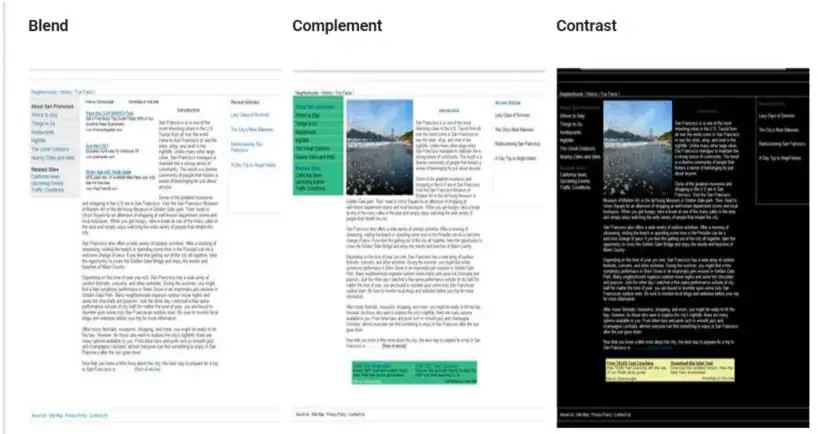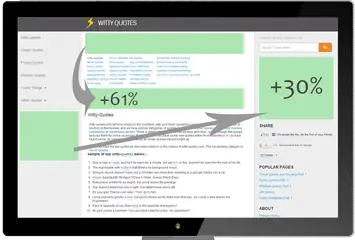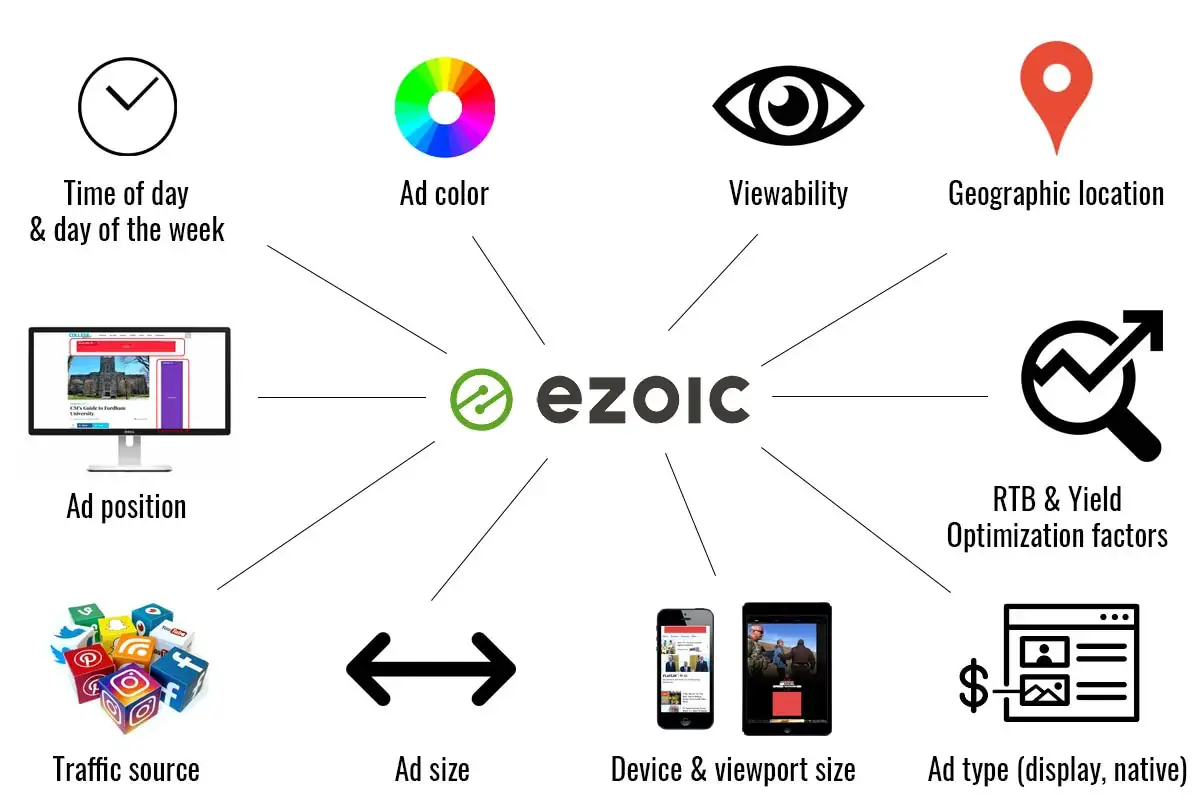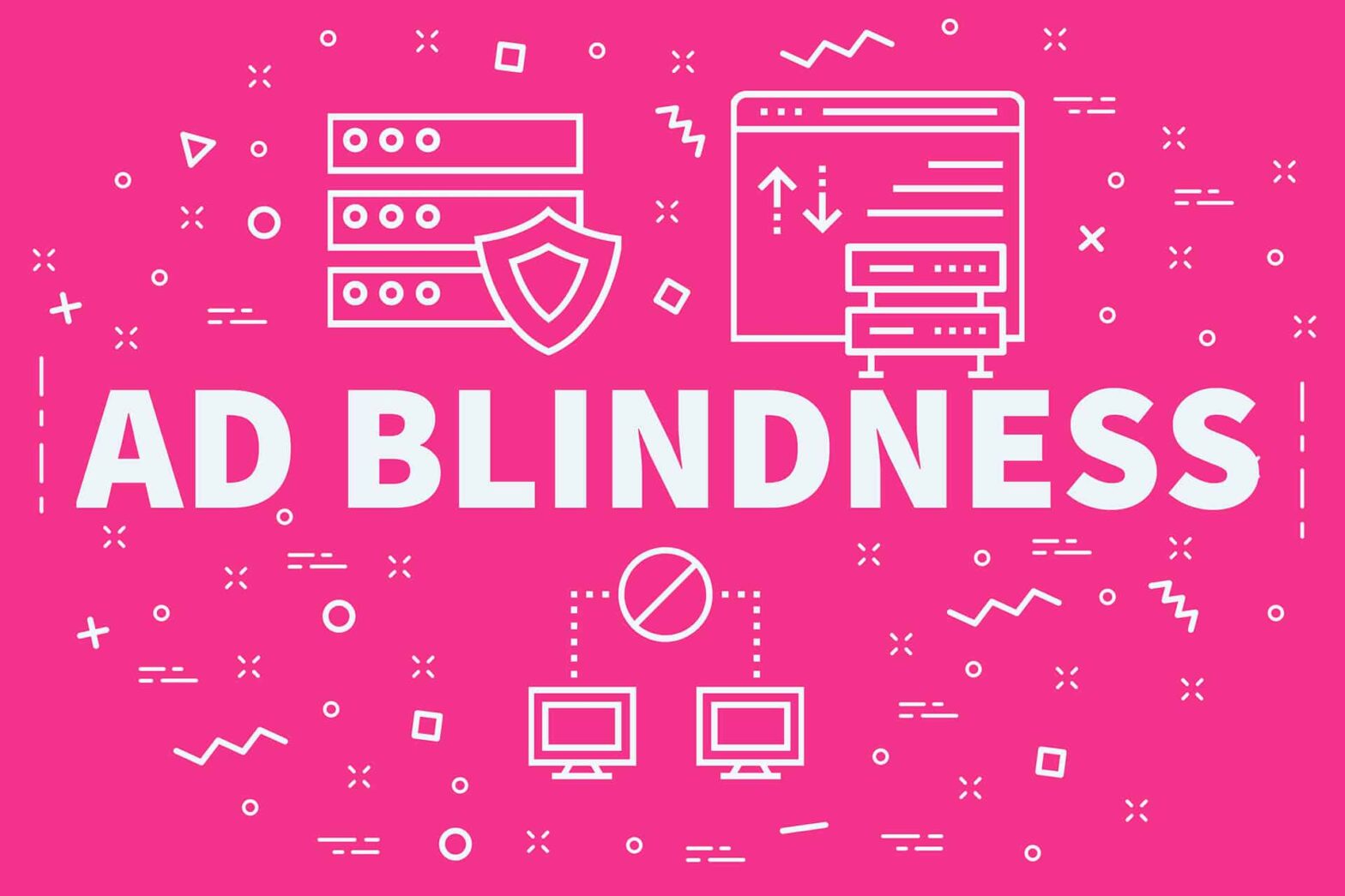What is Ad Blindness?
Ad blindness, also known as banner blindness or banner noise is where visitors to a website consciously or subconsciously ignore banner-like information.
This issue of ad blindness has developed into a topic of discussion for online publishers who have seen their online advertising revenue decline because their ads become ‘invisible’ to their users over time. Today I’m going to take you through ad blindness and how do you combat it as a publisher.
How do I stop Ad Blindness?
So how do we tackle it? Google’s advice to digital publishers to overcome ad blindness is by blending, contrasting and complementing ad colors:

Overcoming ad blindness is one of the keys to earning more revenue. But it’s a balancing act between getting visitors to your site to see and interact with ads without ‘spamming the users out’, or drawing unnatural attention to ads (which is against Google’s terms of service), or sacrificing overall usability.
Do flashy ads help reduce ad blindness?
One approach that has been tried over the last couple of years is placing ad units that are “flashy” in order to grab the attention of website users.
Unfortunately, studies have shown that rather than improving clicks, the ads actually annoy users, reduce CTR, and increase the bounce rate in the long-run.
Another approach that has led to negative long term results is an increased ad load per page. While an increased ad load (the number of ads on a page) may increase revenue short term, an increased ad load is not sustainable in the long run as ad blindness starts to affect visitors who subconsciously learn to block out ads.
What is the best way to stop ad blindness?
Long term, studies have shown that the best way to counteract user learning and reduce ad blindness is to continually test new ad placements and sizes for the screen sizes that your visitors use to view your site.

Without testing new ad placements and ad sizes to counteract user learning, long term revenue could not only decrease, but could potentially negatively affect user experience as well.
Does testing ad locations help ad blindness?
Through continuous testing, publishers can test specific ad placements making sure the advertisements are being noticed while keeping an eye on specific user experience metrics such as bounce rates, time on site, and page views per visit. If users notice ads and don’t find the ad type/location to be bothersome, the end result is increased ad awareness, without the negative ramifications on overall site health.

We’ve found that to do segmentation well you need to find and optimize the combinations of ads that maximize revenue by taking into account thousands of variables for every different kind of visitor you can imagine.
Here are some (of thousands) of the variables that Ezoic A.I. uses to make ad location decisions:

Bottom line is – keep it fresh, watch your usability like a hawk and keep to the rules on where ads can and cannot go. While there is no magic wand for increasing revenue, our research shows that multivariate testing proves to be pretty close.
It’s by far the best way to optimize ad locations and earnings while also combating ad blindness. If you have any questions, I’ll try to answer them below.

